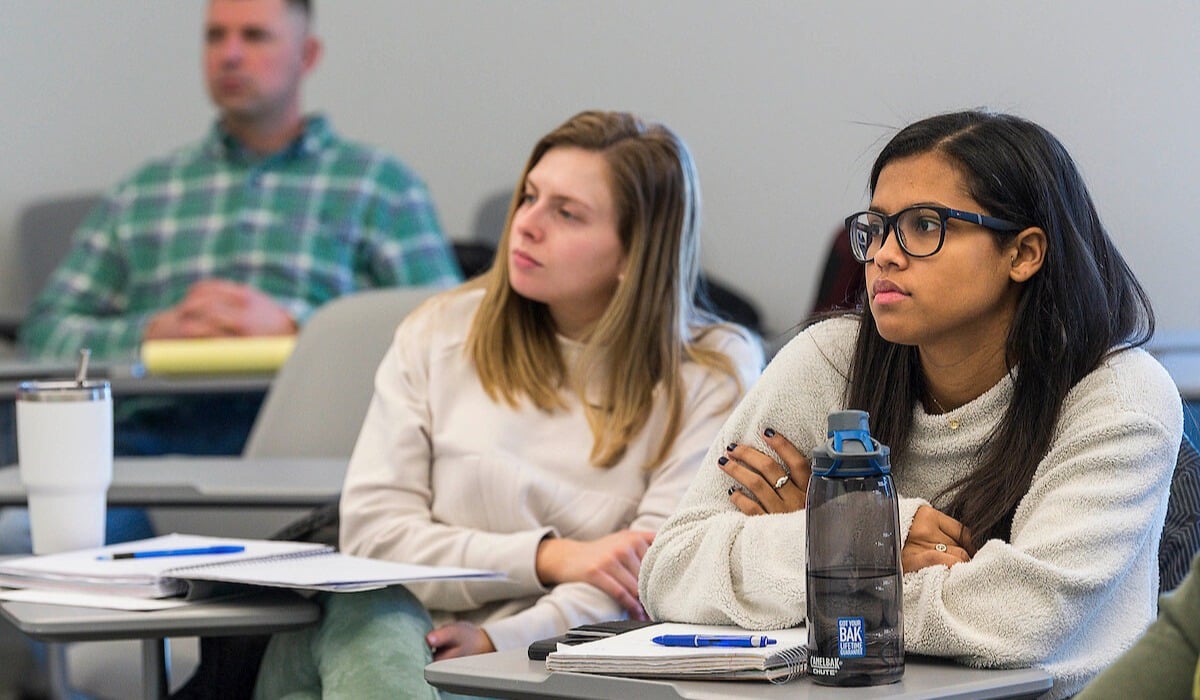It’s important to remember that if you're considering graduate school, you’re not expected to make this decision all on your own. Both the search and application process can seem a little daunting, especially when you consider the impact an advanced degree can have on your future.
But what questions do you ask about a graduate program? And equally important, who should you go to with these questions?
Often overlooked, and invaluable sources of information, are graduate admissions counselors. These trained and experienced individuals have the credentials and know-how to evaluate students’ abilities and interests, address their concerns, outline individualized plans, and generally advise prospective students on their best academic options.
Questions to Ask Grad School Admissions Counselors
Whether it is during your graduate school search, during an open house or admissions event, or in your application interview — there are an endless list of questions to ask admissions officers. Depending on your particular situation, you will likely want to add to this list (and maybe leave one or two off), but here are several graduate school questions to ask an admissions counselor during your next meeting.
1. How do I compare to other applicants?
In this inquiry, you should discuss the demographics of the student body, requirements for admission, and general acceptance rate in light of how many apply. Possessing the previous applicants’ information, the admission counselor can give you an idea of where you stand based on your GRE scores, experience, and other qualifications. This will also help you to understand the caliber of students in the program.
2. What can you tell me about the program curriculum?
The counselor will be able to tell you about the program outcomes and answer any specific questions you might have. You can also ask for course descriptions to help you get a feel for what the degree entails. Based on this information, you can evaluate whether or not the program meets your interests, and if it will prepare you for the career you desire in the future.
3. Who are the faculty?
Not only will you learn from these individuals, you will also participate in research opportunities with them. Inquire about the faculty’s backgrounds, accolades, credentials, and research. You can also ask the counselor to connect you with current students, who can give you an honest glimpse into the professors’ availability and accessibility. It’s also a great idea to ask if you can meet some of the individual professors if possible.
4. What options do I have to obtain my degree?
With this question, you should delve into opportunities such as online, in-person, and hybrid options as well as part-time/full-time programs. The counselor will also help you understand the costs and time commitments associated with each option. In a 2018 study by Learning House, 85 percent of students felt that their online education was equal or superior to in-person study.
Benefits of an online program include learning at your own pace, setting your own schedule, and holding a job while in school, but extend less community support and accountability and necessitate lots of self-discipline. A part-time program will enable you to maintain an income while earning your degree, where full-time study will allow you to devote your total attention to the program, pursuing research opportunities, and networking. Using this information, you can determine the program that best meets your needs and strengths.
Pro-tip: Will you be working while earning your graduate degree? We designed a resource just for you. Get tips and expert advice on how to thrive in your career and grad school at the same time.
5. What financial resources do you offer?
This query will help you understand what the program offers in terms of financial aid, scholarships, and compensated research and teaching assistant positions. Some programs also have incredible graduate assistantship opportunities, so be sure to ask about how those are awarded. The admissions counselors are very familiar with these resources and can point you in the right direction, saving you time and effort.
6. Where are your alumni now?
Knowing what professional accomplishments other graduates have achieved can give you an idea of the possibilities available to you after graduation. This information can also serve as motivation and inspiration during your degree. Graduates of these programs also frequently form professional networks, a huge benefit to alumni of the program.
7. What makes this school unique?
With this question, you offer the admissions counselor a chance to showcase the very best the school and program have to offer. When prospective students don’t ask this question, they are overlooking an opportunity to determine whether the unique aspects of the program harmonize with their own equally unique needs and aspirations. Among similar schools, the aspects that the admissions counselor highlights can give you insight into the program’s core mission and values.
HAVE MORE QUESTIONS TO ASK ABOUT GRADUATE SCHOOL? WE’RE HERE!
While it takes courage and effort to have this discussion with an admissions counselor, it is an essential part of your research process and gives you insights that you likely wouldn’t have been able to obtain on your own. With the information you’ve gathered, you will be able to formulate a strong list of pros and cons for each program. Finally, this meeting enables you to make a strong, personable impression on the admissions department, something that can make a big difference when they are evaluating your application!
If you are looking for more information about graduate school or a specific graduate program, we invite you to request more information or schedule an appointment with an admissions coordinator. We wish you the best of luck in your graduate school journey!








